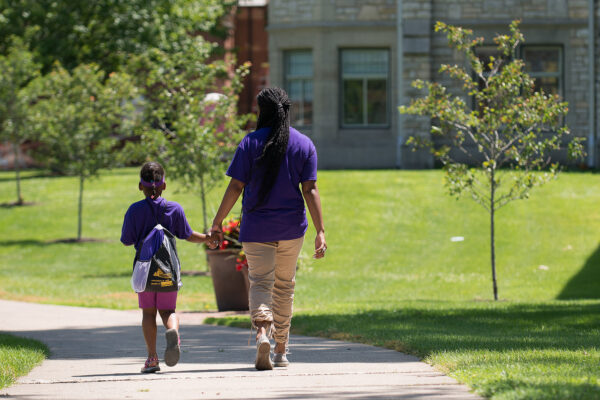How Higher Education Institutions Can Address the Needs of Adult Learners
Title: Three Key Challenges To Meeting Adult Learners’ Needs—And How To Solve Them
Source: Guild Education and Higher Ed Dive
A recent report offers insights about challenges faced by adult learners and how postsecondary institutions can address them.
Adult learners—sometimes called post-traditional students—are those 25 years old or older. Three-fourths of these students work while in college, with almost half working full time. Given their age and likelihood of being employed, adult learners need more targeted and flexible postsecondary opportunities and services.
Data was collected for the report through surveying 233 higher education administrators about how their institution supports working adults. The authors outlined three challenges that postsecondary institutions can address to contribute to the success of these students.
Financial supports
- Seven out of 10 working adult learners say that the cost of college is the largest barrier to pursuing additional education beyond high school. Yet many institutions have not implemented largescale financial aid programs for this population.
- The only financial support initiative implemented at over half of respondents’ institutions targeting working adult learners was scholarships or grants. Emergency financial aid, such as stopgap measures to keep students enrolled, was close behind, but only implemented at 46 percent of institutions.
- A method that respondents felt could help adult working learners was their college or university partnering with employers that provided education benefits to employees. Eighty percent of administrators noted their institution already did this or that it would be valuable to do so.
- The biggest hope from such financial aid programs is to graduate adult learners debt-free, particularly as student loan debt continues to rise.
Wraparound services
- Although six in 10 administrators reported that their institution offered ample online/flexible course offerings to support working adult learners, only one in 10 indicated that their college or university provided wraparound support services (e.g., childcare, coaching, wellness services).
- Thirty-nine percent of administrators at institutions that do not offer such services marked that they could be valuable for working adult learners, but 56 percent of all administrators say it is a challenge to do so.
Career advancement
- While respondents noted the importance of career services programs and services tailored to working adult learners, career support was the only category in the survey in which every initiative was offered by less than half of institutions.
- Almost one-third of respondents reported that their college or university has no career initiatives for working adult learners or were not sure if such efforts existed.
- The report also highlights how institutions can contribute to the career advancement of working adult learners by engaging in practices like integrating career skills into courses and embedding career guidance, coaching, and mentoring within academic programs, as well as adapting existing career services to the strengths and busy lives of adult working learners.
To read the full report, click here.
To learn more about ways to support adult learners, check out ACE’s Effective Practices That Support Adult Learners tool.
—Ty McNamee
If you have any questions or comments about this blog post, please contact us.

